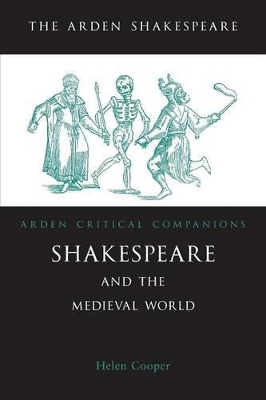Arden Critical Companions
1 total work
Medieval culture pervaded Shakespeare's life and work, from his childhood, spent within reach of the last performances of the Coventry Corpus Christi plays, to his dramatization of Chaucer in The Two Noble Kinsmen three years before his death. The world he lived in was still largely a medieval one, in its topography and its institutions. The language he spoke had been forged over the centuries since the Norman Conquest. The genres in which he wrote, not least historical tragedy, love-comedy and romance, were medieval inventions. A high proportion of his plays have medieval origins and he kept returning to Chaucer, acknowledged as the greatest poet in the English language. Above all, he grew up with an English tradition of drama developed during the Middle Ages that assumed that it was possible to stage anything - all time, all space. Helen Cooper's book looks at the role of all these continuations of medieval culture in enabling Shakespeare to become the world's greatest playwright. Shakespeare and the Medieval World provides a panoramic overview that opens up new vistas within his work and uncovers the richness of his inheritance.
